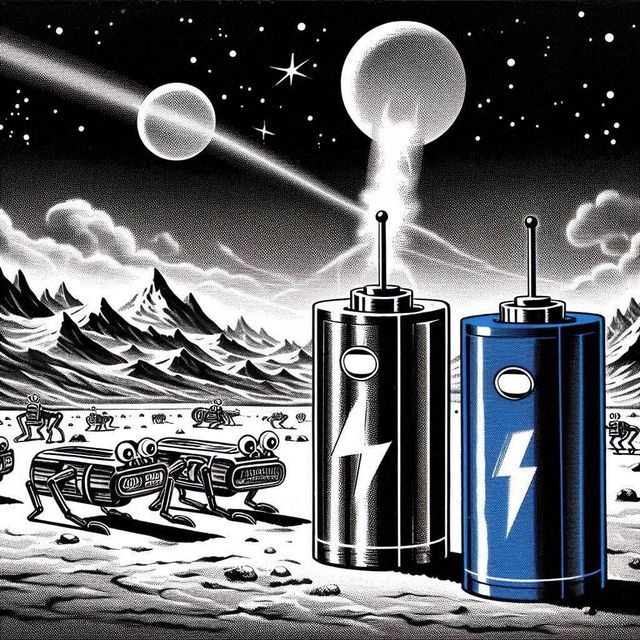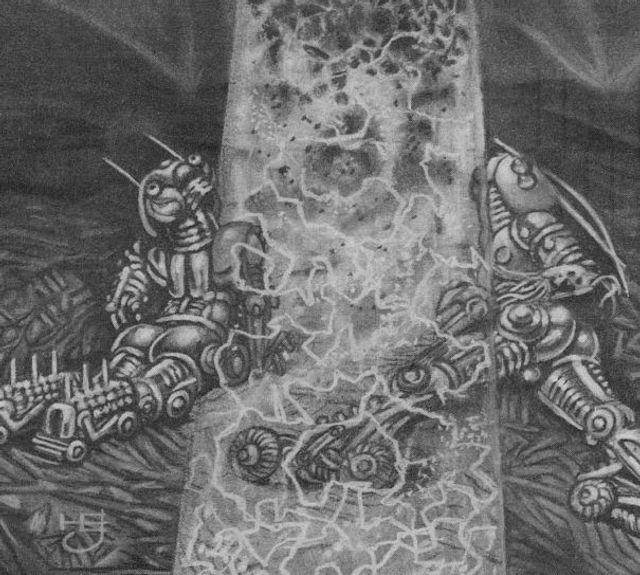-
Vijay Fafat
- Published on
This story is essentially a discussion of Newcombe’s Paradox, with a scaffolding of a story set in the very far future of Earth, along with some philosophical discussion on free will, joys of mortality, quality of life’s deeds, etc.
Faz and Xen are two hybrid organisms – part electric machines, part organic cells. Involved in some skirmish with their enemies, the Laggenmorphs, they are trying to escape but their batteries are almost empty from the fight, some of their body parts broken and disabled. As they struggle, they come across a cylindrical shape, a self-sustaining electromagnetic entity which calls itself “Sam”. Sam is a holdover from the very distant past, when men had learnt the secret of creating self-sustaining electro-magnetic solids – spheres, cylinders, spinning toroids - with some men managing to load their consciousness into the very long-lived, stable force-lines.
Sam has the ability to bestow a surge of electrical energy on to Faz and Xen, giving them new lease on life, and may be more. He proposes to play a Game of choice with each of them. He creates a blue box and a red box, with an “injection” of powerful electricity “potentially” in the red box, and the keys to a very powerful, long-lasting electrical source – “immortality” – “potentially” in the blue box. Sam has already predicted how each of them would play the game, selecting to open only the red, only the blue, or both the boxes. Based on his predictions, he has placed an appropriate prize in each box (which includes the case of him keeping a box empty). Sam is an extremely good predictor of their behaviour, and offers a payoff matrix based on his prediction and the potential choices the player can make about opening one or both boxes.
From there, the story unfolds, with each player making his choice, obtaining his reward, and then reflecting on it over a long period of time… For this unfolding, a summary would be inappropriate.
End-note:
I think of this story as mathfiction not because of any paradoxical aspect but because the story revolves around a classic Game, with payoff matrix, considerations of what the other player (in this case, the game-setter) may have already done or will do in response to the player’s choice, etc. So the player’s choice function in this story’s Newcombe setting would have to be some sort of optimization based on the player’s perception / evaluation of how accurate Sam really was when he set the prizes in different boxes. As it happens, the 2 players in the story make different choices and there is a discussion on how the players think about the game, typical of many game-analyses.
Now, while that is the mathfiction core around which the story is built, it does evolve more into philosophical aspects - should you want to win some types of games? Would winning bring satisfaction in the long term? Is immortality something one would enjoy? or mortality full of deeds?

